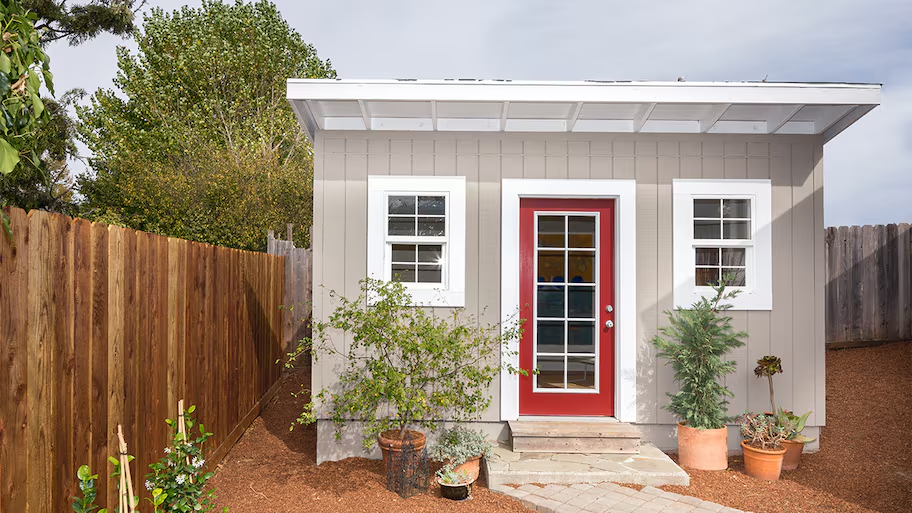
Get matched with top guest house builders in your area
Enter your zip and get matched with up to 3 pros
Matching on HomeAdvisor


Guest house builders in Montchanin
No results for Guest House - Build in
Try adjusting your search criteria.Guest house building services FAQs
In most states, yes—you can build a guest house, but every city or county sets its own zoning rules and building codes. Before breaking ground, check local ordinances, confirm lot setbacks, and secure the right permits. A local contractor or design-build firm can walk you through the paperwork and site requirements so your project starts on solid legal footing.
Yes—homeowners often tap a few different financing tools. A home-equity line of credit (HELOC) lets you borrow against your equity as you need funds. If you prefer a lump sum tied directly to the project, a short-term construction loan can roll into a second mortgage once the build is complete. Cash-out refinancing is another option: you replace your current mortgage with a larger one and use the difference to cover construction costs.
When you build a guest house, you’re creating a separate structure for hosting visitors without the full amenities needed for permanent living. An accessory dwelling unit, however, includes a complete kitchen and bathroom, meeting building codes for a long-term residence. This key difference makes an ADU ideal for long-term occupancy or rental income, adding enduring value to your property.
How many rooms you need depends on how you plan to use the space. Aim for one bedroom per every one or two occupants to make sure everyone has enough privacy and comfort. Added living and dining areas give you extra functionality, especially for rental use or long-term stays.
Most homeowners pick somewhere between 600 and 1,500 square feet to fit all the essentials. Make sure your design supports one to two occupants per bedroom and includes enough common areas for comfortable daily living. A well-proportioned layout boosts both functionality and property value.
No—a guest house isn’t just a bump-out on your main home. A bump-out is a small extension within an existing room for extra seating or storage. In contrast, you build a guest house as a standalone building with its own foundation and amenities, giving you a fully separate living area that can boost your property’s versatility and value.





- Birmingham
- Phoenix
- Tucson
- Fresno
- Long Beach
- Los Angeles
- Modesto
- Sacramento
- San Diego
- San Francisco
- San Jose
- Denver
- Hartford
- Washington DC
- Fort Lauderdale
- Jacksonville
- Miami
- Orlando
- Tampa
- Atlanta
- Chicago
- Indianapolis
- Louisville
- New Orleans
- Baltimore
- Boston
- Detroit
- Grand Rapids
- Minneapolis
- Saint Paul
- Kansas City
- Saint Louis
- Las Vegas
- Albany
- New York
- Asheville
- Charlotte
- Greensboro
- Raleigh
- Winston Salem
- Cincinnati
- Cleveland
- Columbus
- Oklahoma City
- Portland
- Harrisburg
- Philadelphia
- Pittsburgh
- Providence
- Memphis
- Nashville
- Austin
- Dallas
- El Paso
- Fort Worth
- Houston
- San Antonio
- Salt Lake City
- Norfolk
- Richmond
- Virginia Beach
- Seattle
- Madison
- Milwaukee



